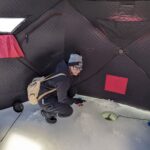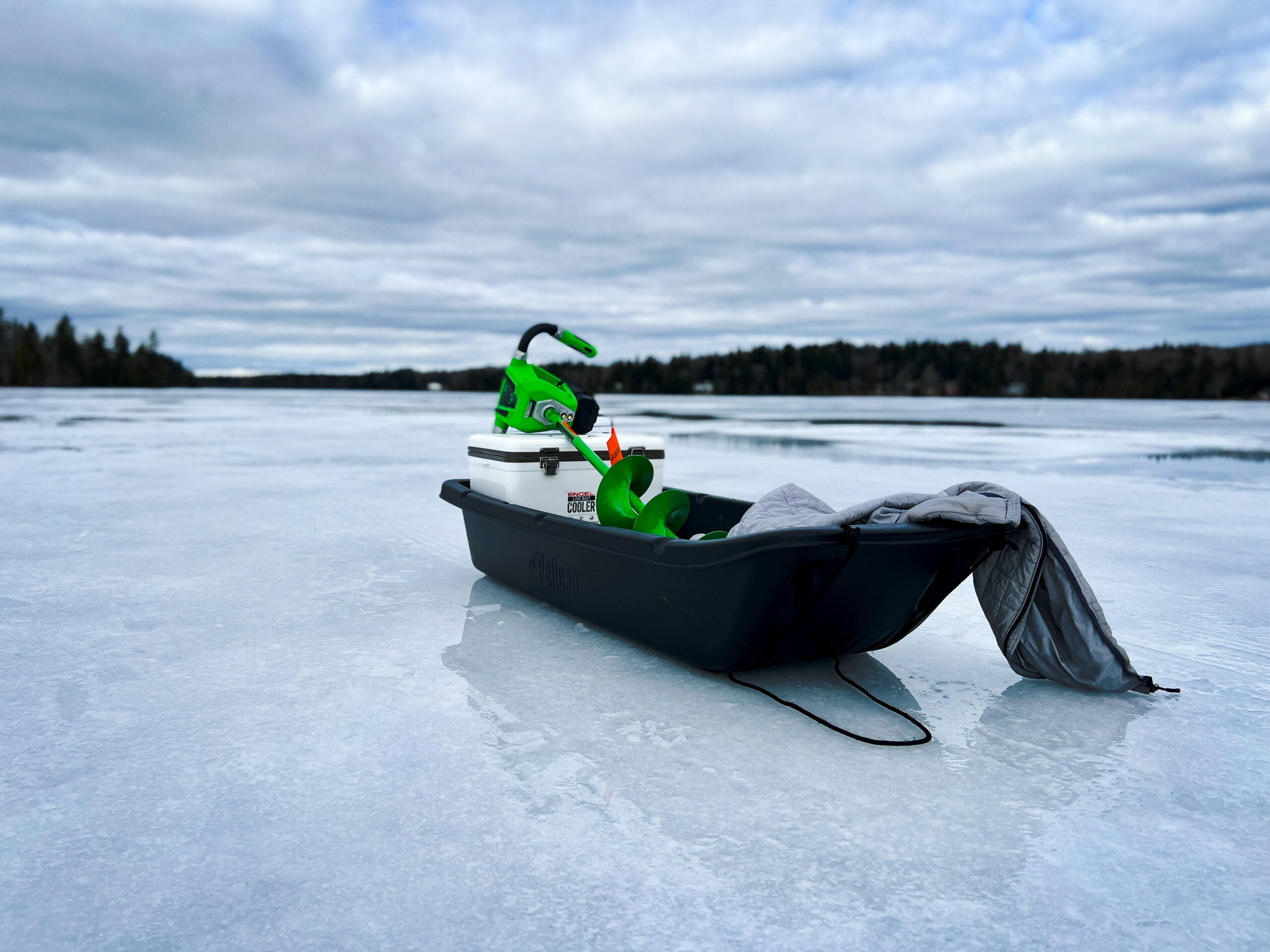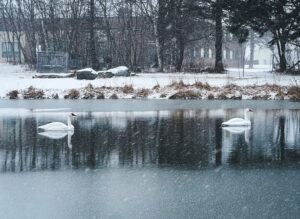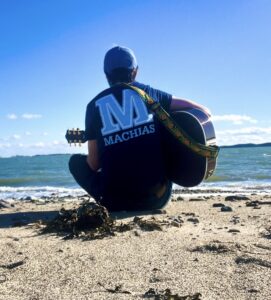Machias is known for its hub of surrounding lakes and rivers, and when the ice freezes over, ice fishing season begins. Plenty of students head out onto these frozen waters year after year, and this year, we’re bringing the information to you. Over the weekend of Feb. 16, 2024, two ice fishing groups set out on the lakes. Matthew Kelly, the vice president of the University of Maine Machias’ Outing Club, took a ragtag group of students out onto Bog Lake and taught them the ropes of ice fishing. Many of these students have never ice-fished before, while others just wanted to hone their skills.

“Some people have so many nerves. They’ve never been on the ice before,” says Matt, a senior and Outdoor Recreation major at UMM who has been ice fishing since he was 12. “Just doing this give people the opportunity to learn about is and improve their knowledge. Thats my whole goal, is to get people out there, give them an opportunity because it’s also really expensive to go fishing. [The] biggest thing about this event was gear and a permit so that other people [who came out] that didn’t have gear could fish and learn too. People learned not only how to set things up, but about ice safety, which is very important. The demand is lass in events like this and more for us to show people what we have for gear for them to use, and also knowledge that we can give them. But the event gives us an opportunity to bring people out and show them firsthand how to do everything. It’s nice to have people out here and to show them that the ice is safe in places, but also just to teach them ice safety and things, to be careful still.”
Plenty of students learned how to ice fish that weekend. With a focus on looking for brook trout, smallmouth bass, and even pickerel, there were plenty of fish in the lake to pick from. Students like Resident Assistant Grace Pine and Marine Biology student Ben Kuzenka tagged along, helping teach others how to ice fish.
“[It’s] mainly about the company more than the actual fishing,” said Kuzenka, who goes out on the ice almost every weekend.

One of the newcomers, Samantha Hall, a first-year marine biology student, enjoyed the information and was eager to share it. “[I] felt great about ice fishing being offered, and I had a great time learning. It was very informational, with details about what you could catch, what each trap was, and how to set them up. I learned to set up traps and Matt showed me how to use the sonar, which showed you if there are fish under the iced. I loved those parts,” Hall said.
Ice fishing is more than just fun for the students who go out. It is also fun for those in the classroom. Plenty of marine biology majors take to the ice and bring back samples for long-standing marine biology teacher Dr. Gale Kraus. The marine biology program is known for its hands-on learning style, and when students bring in fish, Kraus uses that for plenty of her classes, such as invertebrate zoology and ichthyology. This weekend, Kraus challenged students to bring in Pickerel; this is her insight on why:
“Chain pickerel have beautiful guts!!!! That is, very distinctive organs, as opposed to trout that [were] once frozen and thawed [which] have very delicate organs that fall apart. That is why the pickerel are so nice for dissection. Students are allowed to donate some of their catch, but we get most of our freshwater fish from MIF&W. When they do gill netting, they bring us some of the fish that have died in the gill nets.”
Our other ice fishing group consisted of outdoor recreation students Dom Piccuito and Matthew Marshall and marine biology student Ben Kuzenka. The three hit the ice almost every weekend and have much to say.
“For the chase of going out and catching a fish,” said Kuzenka, who finds a great correlation between ice fishing and his classes. “[I get a] hands-on skill to identify fish without having an ID manual next to me.”
With Kraus pushing her students to be able to identify marine life without a manual, Kuzenka put this challenge into his passion to succeed both in and out of the classroom.
Marshall said, “[As a Outdoor Recreation major] it helps hone special skills I can apply to my major, and the patience of ice fishing can also relate back to class.” As a prospective game warden or marine patrol, you can find Matt on the ice and talking to other marine biology majors about the information he learns in the classroom and out on the ice.
Piccuito tells us a different story. “I go to seek a solitude you can’t get while in classes,” Piccuito explained. As a perspective game warden, Piccuito spends much of his time with animals and people and choses this time to hone his skills. With fishing being his passion, you can find him up at the break of dawn trying to catch all kinds of fish.
Ice fishing has brought great passion for students and brings this Machias community together. With the ice melting, we will see fewer students on the ice, but that doesn’t stop them from finding new ways to fish and bringing this information to the community.






